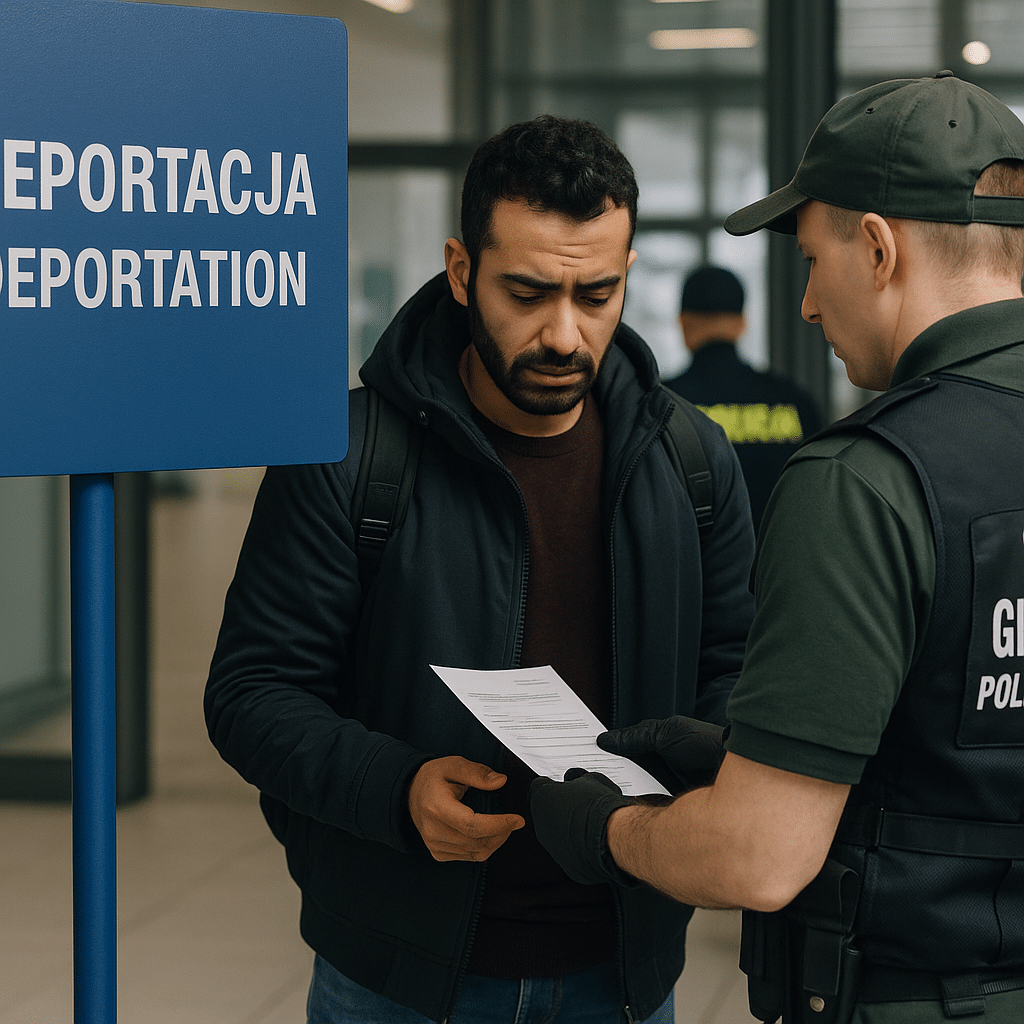Deportation is one of the most serious legal measures taken against a foreigner staying in Poland. While the term is commonly used to describe any form of forced removal from a country, under Polish law it specifically refers to the obligation to return. What exactly is deportation, when can it be ordered, and what can a foreigner do to avoid it?
What is deportation under Polish law?
The official term in Poland is “obligation to return” (“zobowiązanie do powrotu”), issued by the authorities when a foreigner violates immigration laws. Deportation occurs when a non-citizen:
- stays in Poland without a valid visa or residence permit,
- crosses the border illegally,
- poses a threat to public order or national security,
- has received a final decision refusing international protection,
- submits repeated, unfounded asylum applications.
The decision is issued by the Provincial Governor (Wojewoda) or the Border Guard after a legal and administrative process.
When can a foreigner be deported from Poland?
Deportation may be ordered in the following cases:
- expired visa or residence permit with no legal basis to stay,
- illegal work or lack of legal source of income,
- criminal activity or conviction in Poland,
- posing a serious threat to state security or public order,
- illegal border crossing or forged documents.
How does the deportation process work?
The procedure includes several stages:
- Border Guard checks the legality of the foreigner’s stay,
- a decision on the obligation to return is issued – with a deadline for voluntary departure (usually 30 days),
- in case of failure to leave voluntarily – forced removal may take place,
- the foreigner may be placed in a guarded center or under border supervision.
Can you appeal a deportation order?
Yes. A foreigner has the right to appeal within 14 days from the date of receiving the decision:
- if the decision was issued by the Governor – the appeal goes to the Head of the Office for Foreigners,
- if issued by the Border Guard – to the Chief Commander of the Border Guard.
The foreigner may also request to suspend the enforcement of the decision, especially if they have family, children, or strong social ties in Poland.
When is deportation not allowed?
Even if a foreigner has no legal right to stay, deportation may be inadmissible if:
- there is a risk of torture or inhuman treatment in the country of origin,
- the person is a family member of an EU or Polish citizen,
- they are a parent of a minor child attending school in Poland,
- they are undergoing a legal procedure to obtain a humanitarian or residence permit.
Summary
Deportation is a serious matter, but not every decision to expel a foreigner is final. There are legal tools to challenge and delay the process, especially when it violates fundamental rights. If you have received a deportation order or are at risk of being deported – contact a legal advisor immediately. Proper representation may significantly increase your chances of staying legally in Poland.
tel. 32 307 01 77
[email protected]








